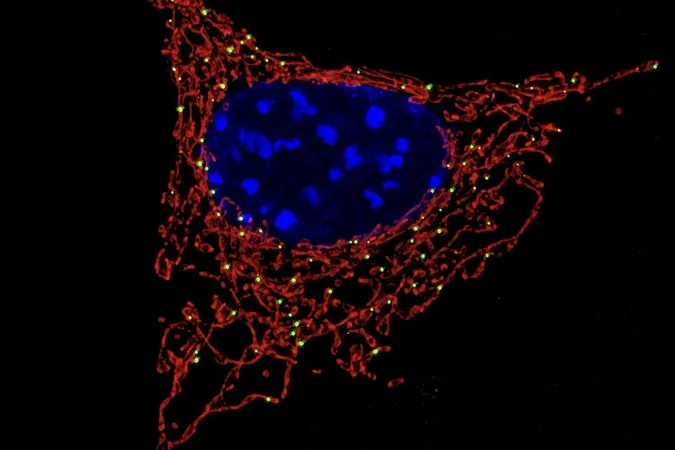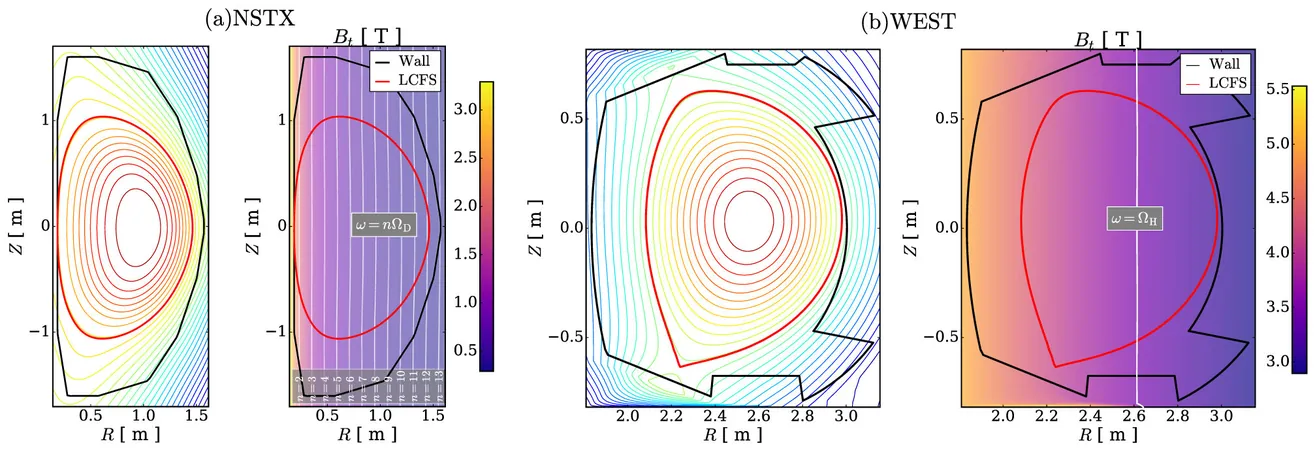
The Surprising Truth About Your Mitochondria: Why You Only Inherit Them from Mom and What It Means for Your Health
2024-10-10
Author: Wei
Introduction
Have you ever wondered why you inherited your mom’s distinctive laugh or your dad’s knack for storytelling? Beyond these traits lies a fascinating genetic inheritance that’s crucial to our very survival: mitochondria. These tiny cellular powerhouses are responsible for producing adenosine triphosphate (ATP), the essential energy currency our bodies rely on. And here's the kicker: in nearly all animals, including humans, we inherit mitochondrial DNA (mtDNA) exclusively from our mothers!
Research Findings
For years, scientists have puzzled over this peculiar phenomenon. Recent research led by Ding Xue, a molecular biologist at the University of Colorado Boulder, has uncovered the mechanisms behind this maternal inheritance, offering fresh insights that could pave the way for groundbreaking treatments for rare mitochondrial disorders.
In a rare 2016 study, Xue discovered that paternal mtDNA tends to undergo a self-destruction process during reproduction, rendering it almost nonexistent in offspring. "It might sound harsh, but evolution has devised a way to prevent less favorable mtDNA from being passed down," he explained. Though instances of humans inheriting mtDNA from both parents do exist, they are exceptionally rare.
Experimental Insights
To explore what happens in these unusual cases, Xue and his team experimented with C. elegans, a tiny roundworm with a surprisingly similar cellular structure to humans. While the worms didn’t exhibit any notable sensory defects, researchers observed significant impairments in memory, learning, and motor activities, underscoring how critical uniparental mtDNA is for proper function.
Impact on Health
This is particularly important considering that mitochondrial diseases affect about one in 5,000 people, often leading to severe developmental delays, poor muscle function, and cognitive impairments. Earlier studies with mice also indicated a host of metabolic issues when different mtDNA sequences were introduced.
Promising Interventions
In a promising twist, Xue’s team found they could reverse some negative effects by treating the affected worms with vitamin K2. Not only did this intervention restore normal ATP levels, but it also significantly enhanced the worms’ ability to learn and retain memories. This finding emphasizes the importance of understanding mitochondrial inheritance and its implications for health.
Conclusion
The research highlights that the inheritance of mitochondria from a single parent ensures genetic stability, as introducing a second mtDNA source could aggravate existing conditions. Notably, Xue suggested that failures in the elimination of paternal mtDNA might contribute to mitochondrial disorders in humans, impacting our wellbeing throughout the lifecycle.
While it's unrealistic to assume that simply administering vitamin K2 to those with mitochondrial diseases will serve as a panacea, there might be potential benefits for mothers with a familial history of these disorders. By possibly reducing malfunctions during the passing of genetic information, this could lower the risk for future generations.
As fascinating as these findings are, they also highlight a significant absence: there remains no cure for the heartbreak of your favorite team missing the playoffs every year—thanks a lot, dad! But as research advances, who knows what other astonishing truths we'll uncover about our biology and health? Stay tuned!



 Brasil (PT)
Brasil (PT)
 Canada (EN)
Canada (EN)
 Chile (ES)
Chile (ES)
 España (ES)
España (ES)
 France (FR)
France (FR)
 Hong Kong (EN)
Hong Kong (EN)
 Italia (IT)
Italia (IT)
 日本 (JA)
日本 (JA)
 Magyarország (HU)
Magyarország (HU)
 Norge (NO)
Norge (NO)
 Polska (PL)
Polska (PL)
 Schweiz (DE)
Schweiz (DE)
 Singapore (EN)
Singapore (EN)
 Sverige (SV)
Sverige (SV)
 Suomi (FI)
Suomi (FI)
 Türkiye (TR)
Türkiye (TR)